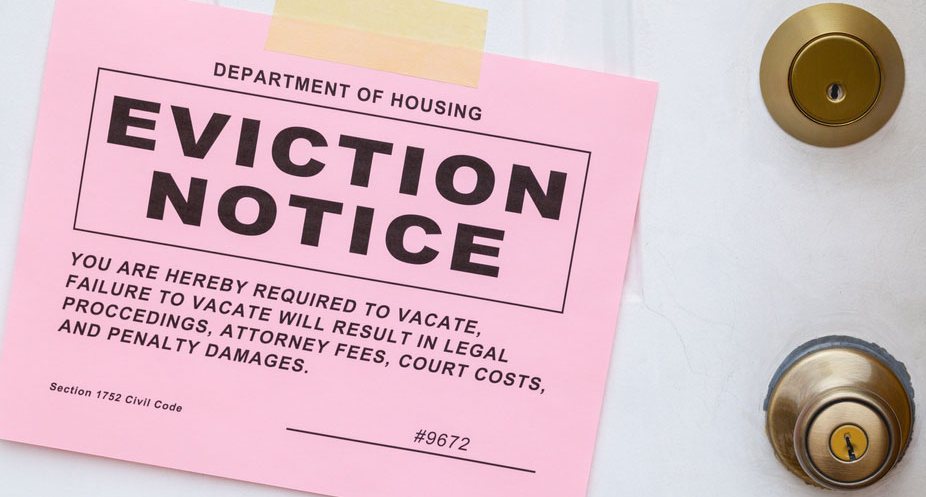Overcoming Barriers: Renting Apartments in Las Vegas
for Veterans and Disabled Veterans with Prior Evictions
by Bob Maxwell
CEO
Voice of the Veteran
Introduction
Securing suitable housing is a fundamental necessity for individuals, particularly for veterans and disabled veterans who have served their country. However, finding an apartment in Las Vegas becomes an even more arduous task for these individuals if they have an old eviction on their record. This article sheds light on the specific challenges faced by veterans and disabled veterans with prior evictions and emphasizes the need for greater support and understanding to ensure they have access to stable housing.
Unique Circumstances of Veterans and Disabled Veterans
Veterans and disabled veterans may face distinctive challenges when it comes to housing stability. Service-related disabilities, physical limitations, and mental health issues can impact their ability to maintain consistent employment or income, making it harder to meet the financial requirements of renting an apartment. This, coupled with the lingering effects of their service, increases their vulnerability to eviction and further exacerbates the challenges they face in finding housing. Thus, the unhealthy journey to potential homelessness begins.
making it harder to meet the financial requirements of renting an apartment. This, coupled with the lingering effects of their service, increases their vulnerability to eviction and further exacerbates the challenges they face in finding housing. Thus, the unhealthy journey to potential homelessness begins.
Perpetuation of Stigma and Prejudice
Despite their service and sacrifices, veterans and disabled veterans can still encounter stigma and prejudice in the rental market. The presence of an old eviction record reinforces negative perceptions, leading landlords to assume potential risks and deny housing opportunities to these individuals. The stereotypes associated with veterans, such as post-traumatic stress disorder (PTSD) or difficulties adjusting to civilian life, often contribute to unwarranted assumptions about their ability to be responsible tenants. The basic “judging a book by its cover” is alive and kicking at these veterans.
Limited Support and Resources
Veterans and disabled veterans require specialized support and resources to overcome housing challenges. While various organizations and government programs exist to assist veterans, the availability and accessibility of these resources can vary significantly. Insufficient outreach efforts, lack of awareness, and complex application processes can impede veterans’ access to support services specifically tailored to their needs, making it harder to address eviction records and secure stable housing.
Impact of Eviction on Rental Applications
Eviction records, even if they are old, can present significant obstacles during the rental application process. Many landlords and property management companies conduct comprehensive background checks that include rental history verification. The presence of a prior eviction can trigger automatic disqualification or raise concerns about an applicant’s financial stability and rental reliability. These challenges disproportionately affect veterans and disabled veterans, as they may have limited options due to their specific circumstances.
Way too many times numerous veterans and disabled veterans are becoming victims of the “judging a book by its cover” routine because they have an eviction. Even if it is only one veteran, it is one too many. Veterans are not looking for a hand out, there appreciate a hand up. Many times the words “thank you for your service” are spoken to veterans and active duty alike, but there are those who only speak the words without any thought of what that veteran may have gone through or is currently going through. How do you think the veteran feels when they are turned down for an apartment because they have a prior eviction and as they walk away from the turn down, the rental agent says, “thank you for your service?” The only person not feeling good about that statement is the veteran. The veteran feels the pain of hopelessness and helplessness.
Advocacy and Support Solutions
Addressing the difficulties faced by veterans and disabled veterans with old eviction records requires a collaborative effort. Advocacy organizations, government agencies, and property owners can work together to develop more inclusive housing policies and practices. This can include establishing guidelines that consider the unique challenges veterans face and provide alternative ways to assess their rental suitability beyond solely relying on eviction records.
Furthermore, expanding access to counseling services, financial support programs, and legal aid specifically designed for veterans can help mitigate the risk of eviction and provide the necessary resources for successful tenancy. Building awareness and promoting understanding among landlords and property management companies about the experiences and capabilities of veterans and disabled veterans can also foster more equitable rental opportunities.
In the real world, solutions are hard to come by for veterans and disabled veterans. They do not know where to look for the help and when they do actually find an agency that does “help”, many times those agencies are out of funding, have unrealistic policies and procedures or if the veteran lives with a family member, those family members income is counted and now the veteran does not qualify because the household income is too high. How do you move forward with unrealistic and unreasonable guidelines like these? This is but one example of how difficult it is for many veterans and disabled veterans, and we wonder why the veteran homelessness population is growing.
Conclusion
Renting an apartment in Las Vegas is an uphill battle for veterans and disabled veterans with old eviction records. The combination of stigma, limited support, and the impact of eviction on rental applications creates significant barriers to accessing stable housing. By recognizing and addressing these challenges, and by fostering collaboration among stakeholders, Las Vegas can take meaningful steps towards ensuring that veterans and disabled veterans have equal access to safe and affordable housing. Supporting these brave individuals who have served their country is not only a moral imperative but also a way to honor their sacrifice and enhance the fabric of our communities. Let’s make the words “thank you for your service” be more than lip service, let’s attach it to programs and assistance that actually produce results, because results don’t lie.

